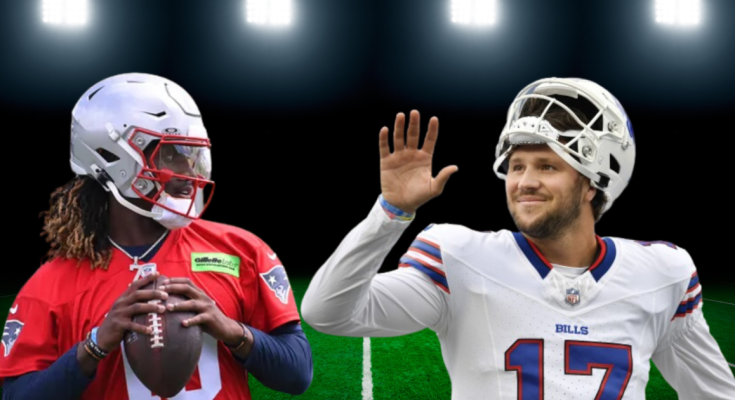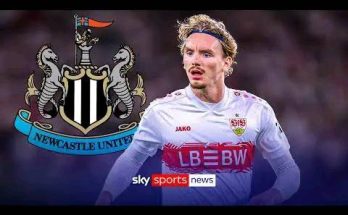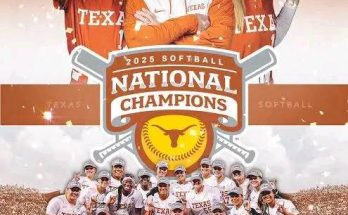Believe it or not, Joe Milton III, quarterback of the Dallas Cowboys, was compared to Josh Allen, yes, the NFL MVP. At first glance, such a comparison might seem far-fetched, even outrageous, to some. Josh Allen, the Buffalo Bills’ superstar, is one of the most dynamic quarterbacks in the league—a physical specimen with a cannon arm, elite athleticism, and the ability to single-handedly take over games. Joe Milton, on the other hand, is a relatively unproven talent, a rookie still finding his footing in the NFL. Yet, the parallels between the two are undeniable, and the potential for Milton to follow a similar trajectory is not as far-fetched as it may initially appear.
The comparison begins with their physical attributes. Josh Allen stands at 6’5” and weighs around 237 pounds, a prototype for the modern NFL quarterback—big, strong, and mobile. Joe Milton matches that frame almost exactly, listed at 6’5” and 245 pounds. Both possess rare arm strength, capable of launching the ball 70-plus yards with ease. Milton’s arm talent has been well-documented since his college days, where he routinely made throws that left scouts in awe. At Tennessee, he became known for his deep-ball accuracy and effortless velocity, traits that immediately draw comparisons to Allen’s game.
But physical tools alone don’t make an NFL quarterback. Allen’s journey to stardom was anything but linear. Coming out of Wyoming, he was a raw prospect with accuracy issues, completing just 56% of his passes in college. Many doubted whether he could refine his mechanics and decision-making enough to succeed at the professional level. Similarly, Milton’s college career was marked by inconsistency. He began at Michigan before transferring to Tennessee, where he showed flashes of brilliance but struggled with touch and timing. His final season with the Volunteers displayed improvement, but questions about his ability to read defenses and make quick decisions lingered.
The key to Allen’s development was patience and coaching. The Bills invested heavily in him, providing the right system and support staff to refine his game. Quarterbacks coach Ken Dorsey (now with the Miami Dolphins) and offensive coordinator Brian Daboll (now head coach of the New York Giants) played crucial roles in Allen’s growth. Over time, Allen improved his footwork, tightened his throwing motion, and became more disciplined in his progressions. The result? A quarterback who went from a project to an MVP-caliber player in just a few seasons.
For Milton, the Cowboys present a similar opportunity. Dallas has a strong offensive infrastructure, with head coach Mike McCarthy and offensive coordinator Brian Schottenheimer known for developing quarterbacks. The presence of Dak Prescott, a seasoned veteran, could also be invaluable for Milton’s growth. Prescott himself was once a raw talent with elite physical tools, and his mentorship could help Milton navigate the challenges of the NFL. If the Cowboys are willing to be patient—allowing Milton to sit, learn, and gradually adapt to the speed of the pro game—there’s no reason he can’t make a leap similar to Allen’s.
Another factor in the comparison is their athleticism. Allen is one of the most dangerous running quarterbacks in the league, using his size and speed to punish defenses on scrambles and designed runs. Milton, while not as polished a runner, has similar mobility. At Tennessee, he was used in quarterback power schemes and showed the ability to break tackles and pick up tough yards. In the right system, Milton could develop into a dual-threat weapon, much like Allen.
Of course, the comparison isn’t perfect. Allen’s intangibles—his competitiveness, leadership, and clutch gene—are what separate him from other physically gifted quarterbacks. Milton will need to prove he has those same qualities. Leadership isn’t just about talent; it’s about commanding a huddle, elevating teammates, and performing under pressure. Allen’s ability to rally the Bills in critical moments didn’t happen overnight—it was forged through experience and adversity. Milton will need to show he can handle the mental and emotional demands of being an NFL starter.
Then there’s the matter of opportunity. Allen was handed the starting job early in his career, allowing him to learn through trial and error. Milton, barring injury, won’t have that luxury in Dallas as long as Prescott is healthy. But that doesn’t mean he can’t develop behind the scenes. The NFL has seen plenty of quarterbacks blossom after spending time as backups—Aaron Rodgers, Patrick Mahomes, and even Prescott himself are prime examples. If Milton uses his time wisely, studying defenses, refining his mechanics, and preparing as if he’s the starter, he could be ready when his chance arrives.
The comparison to Josh Allen isn’t about saying Joe Milton will definitely become an MVP. It’s about recognizing the blueprint. Allen was once a raw, toolsy prospect with accuracy issues, much like Milton. Through coaching, patience, and hard work, he transformed into one of the best players in the league. Milton has the same physical gifts, the same potential. Whether he reaches that ceiling depends on his work ethic, his support system, and a little bit of luck.
For Cowboys fans, the idea of Milton becoming the next Josh Allen should be exciting. It’s a reminder that greatness isn’t always obvious from the start. Sometimes, it takes time, development, and belief. If Milton can harness his immense talent and follow the path Allen paved, the NFL might just have another superstar in the making. And if that happens, the comparison that once seemed outrageous will look prophetic.



